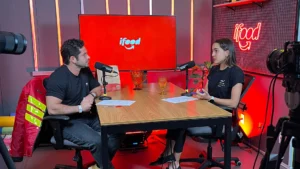Rafael Ribeiro, head of operations at Bossa Nova, analyzes the growth of investments in startups in the country and explains what to do to get noticed
Brazil has, at the time this text is published, 21,651 startups (data from Startupbase). Most of them are still waiting for an investment to grow and establish themselves.
Competition is great, but there is two good news. Last year, investment in national startups more than doubled compared to 2020, as shown by data from the Distrito platform. According to an article in Folha de S. Paulo, US $9.4 billion was injected into the Brazilian innovation market. In the last decade, only 2016 recorded a drop in investments.
The other good news is that the market is far from saturated. After all, there are opportunities in different areas of activity. “For example, agribusiness, which currently generates between 25 and 30% of Brazil’s GDP. The latest mapping carried out by the Brazilian Startup Association identified 300 startups in the sector. We would have to have a much higher number”, said Rafael Ribeiro, head of operations at Bossa Nova Investimentos to iFood News.
Rafael Ribeiro was once an entrepreneur and is now a startup mentor. He is also an investor and knows well how the mind works of those who have decided to bet on a business that is high risk and at the same time high profitability if the choice is right.
He will be in Bossa Summit, an event that brings together, between the 6th and 7th of April, Venture Capital funds, angel investors from Brazil, entrepreneurs and startups and which is sponsored by iFood. There, your presentation will be about how an investor's mind works. Check out some clues he gave us.
What to do to get into the investor's mind.
Conquer with numbers
When you look for an investment, you look for a relationship. To win over investors you need patience (it won't happen overnight) and transparency. “It’s very important to make your numbers and data clear,” said the startup mentor.
Show people
The dedication of the entrepreneur and the team counts. After all, if the person seeking the investment is not 100% committed, why would the investor be?
Explain the market
How big is this market? Where do you want to go with this idea? Is it a disruptive, innovative idea?
Your idea has been validated, right?
The investor wants to understand how the idea was validated. “What are the data and information that prove what you are showing?” advises Rafael Ribeiro.
Technology to scale
Here the investor will want to understand how the technology is built and what was implemented to show the power of scalability. “If I put R $100, R $200 thousand here with this team, with this validation, with this technology, with this MVP, will it be possible to deliver? Will it be possible to scale?”, explained the investor.
Read Rafael Ribeiro's full interview with iFood News.
Data from the Distrito platform, published by the Folha de S. Paulo newspaper, show that investment in startups in Brazil more than doubled in 2021 compared to 2020, reaching US $9.4 billion. What is this due to?
The pandemic showed that, in fact, startups are one of the drivers of the country's economy and how important the innovation market is.
Big companies, big market investors, accustomed to investing in traditional businesses, found themselves in a very different world overnight. People had to adapt to this with tools, a new culture, and then I think there was a big boom in a series of innovation companies.
In education, for example. A series of startups that previously had difficulty being hired by large education systems ended up gaining speed in these absurd hirings. That famous contract that is at the bottom of the drawer and suddenly it becomes a priority.
And do you think this will continue this year?
Data from the Brazilian Startup Association shows that we went from 3 thousand startups to 15 thousand across the country. This shows that we are increasingly thinking about entrepreneurship, innovation, technology and thinking about market disruption.
I see absurd, exponential growth in a series of areas that startups can disrupt in the coming years. For example, agribusiness, which currently generates between 25 and 30% of Brazil's GDP. The latest mapping identified 300 startups in the sector. We would have to have a much larger number.
In addition to agribusiness, which other areas have room for growth?
I will highlight five: agribusiness, health, education, industry 4.0 and insurance.
And there is another sector that we will certainly see evolving a lot, which is the cybersecurity sector. With the LGPD law, we will certainly see a lot of interesting things there.
So these would be the big areas to bet on and, who knows, get an investment?
I think there are many other things. If you think about the food tech market, we still have a lot to grow. We know that there are still solutions that can be created to solve problems that iFood, for example, does not currently cover, and that can be developed and then acquired by iFood, for example. There is a lot of opportunity to be explored.
You are a startup mentor and I imagine you get a lot of questions about how to get an investment. What do you say to them?
In this process, we always provide a lot of guidance on the metrics and information it should present because most funds are concentrated in one region of São Paulo. How will a startup from Manaus, for example, achieve prominence through the form that will be delivered to an analyst?
We end up guiding many entrepreneurs to bring the data and information that attracts the attention of these analysts so that they have the opportunity to talk to those who are going to invest.
What information?
It is necessary to present solid and cohesive information, that is, the main financial KPIs, sales KPIs in a clear and succinct way, his company's KPIs in a very explanatory way, build a good DRE (Income Statement). This serves to show the analyst that he is a mature entrepreneur.
And how the investor's mind works. What does he analyze when deciding whether to invest money?
In short: It means having a good relationship, a good team to execute, having good validation, having a good MVP, good technology and well-presented KPIS.
Bossa Summit
The Bossa Summit is an unprecedented event that will bring together the main Venture Capital funds and angel investors in Brazil in São Paulo to network with entrepreneurs and startups. It is a movement to accelerate the investment market in startups in Brazil by connecting and empowering the ecosystem. iFood is one of the event's sponsors.
When: April 6th and 7th
Where: ARCA – Av. Manuel Bandeira, 360, Vila Leopoldina, São Paulo, SP
Tickets: You can get a discount of 20% when purchasing tickets through this link: https://www.sympla.com.br/evento/bossa-summit-06-e-07-de-abril/1456108?d=ifood20 For more information, visit the official website at https://bossasummit.com.br/


